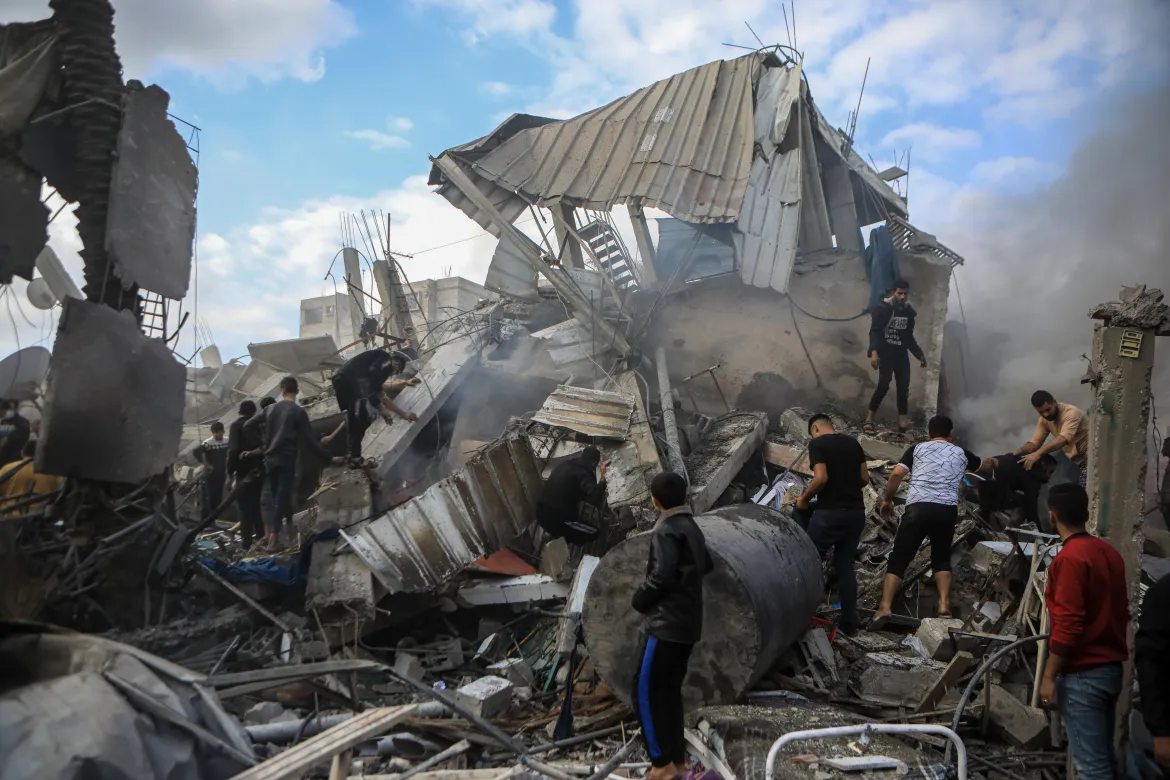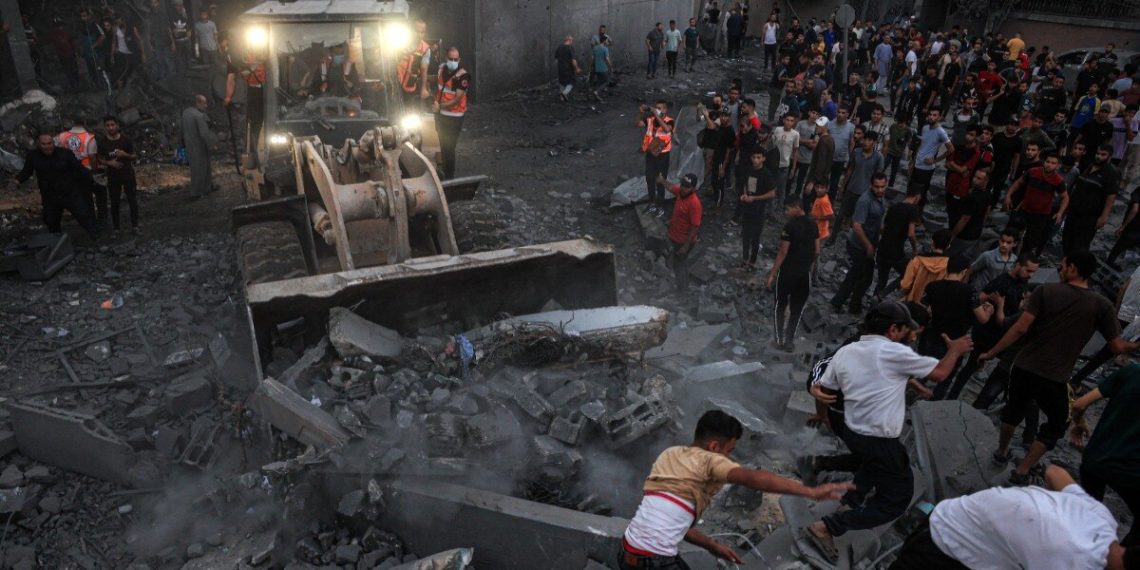The United Nations humanitarian office expressed deep concern about escalating hostilities in Khan Younis, Gaza, leading to a surge in internally displaced people seeking refuge in Rafah near the Egyptian border.
With Israel planning to advance its offensive farther south, the situation in Rafah is described as a “pressure cooker of despair,” with over half of Gaza’s 2.3 million people taking shelter in the area. Many face harsh conditions in makeshift tents and public buildings, and UN spokesperson Jens Laerke fears the worsening situation.
Khan Younis, previously a relatively safe zone, has become a target, facing heavy fighting, including areas around hospitals, jeopardizing the safety of medical staff and internally displaced people. The intensified attacks near Rafah add to the humanitarian crisis. Agencies are struggling to respond under these challenging circumstances.

In a separate statement, UNICEF estimated that 17,000 children in Gaza were unaccompanied or separated from their families during the conflict that began on Oct. 7.
The mental health of nearly all children in the enclave is considered at risk, with symptoms like persistent anxiety, loss of appetite, sleep disturbances, and emotional outbursts. Jonathan Crickx, UNICEF’s chief of communication for the Occupied Palestinian Territories, highlighted the urgent need for mental health and psychosocial support for over a million children in Gaza.
Amid the ongoing conflict initiated by attacks from Hamas gunmen in southern Israel, the humanitarian crisis in Gaza continues to worsen, raising concerns about the well-being of the civilian population, especially children.














